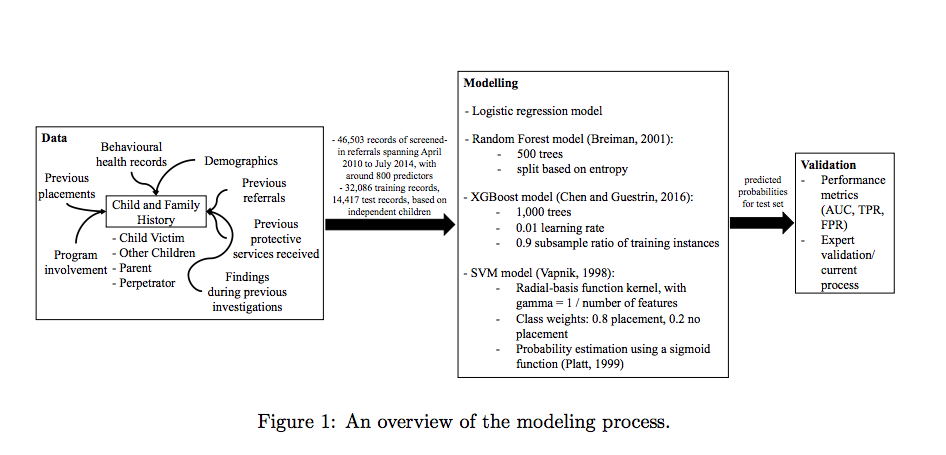How are predictive models transforming how we think about child protection, and how should we think about the role of such systems in a democracy?
If you’re interested to ask these questions, join us at 2-3pm on Tuesday, Feb 20th at Sherrerd Hall room 306 for our opening Technology and Society Reading group meeting. The conversation is open to anyone who’s interested, and who’s willing to do the reading in advance. (if you’re interested, come for our lunch talk that day as well, which focuses on privacy & safety concerning intimate partner violence)

In 2016, Allegheny County, which includes the city of Pittsburgh, became the first region in the US to use a predictive model to “identify families most in need of intervention” for their department of Children, Youth and Families. These models create a risk score for children who might be at risk of violence and guide decisions about followup by government employees. In January 2018, three very different perspectives were published widely about this system: a New York Times Magazine article, a chapter in Virginia Eubanks’s new book Automating Inequality (blog post here), and a new academic paper by the creators of the system that outlines the work they’ve done to make the system transparent and fair.
- Eubanks, Virginia (Jan 2018) A Child Abuse Prediction Model Fails Poor Families. WIRED Magazine
- Hurley, Dan. (Jan 2018) Can An Algorithm Tell When Kids are in Danger? New York Times Magazine
- Chouldechova, A., Benavides-Prado, D., Fialko, O., & Vaithianathan, R. (2018, January). A case study of algorithm-assisted decision making in child maltreatment hotline screening decisions. In Conference on Fairness, Accountability and Transparency (pp. 134-148).
About the Technology and Society Reading Group
At the Center for Information Technology Policy, we bring together people with expertise in technology, engineering, policy, and the social sciences to ask those questions and develop new approaches together. You can sign up for the mailing list here, where you will receive reading material for discussion before the event.
This semester, conversations will be organized by CITP fellows J. Nathan Matias and Ben Zevenbergen.
If you have ideas for a conversation you would like to see us discuss, please email Nathan () and Ben () with suggestions, and some references that you think might be interested
Time: every other Tuesday from 2pm-3pm, starting Feb 20th
- Feb 20th: Using AI for child protection in Allegheny County, PA
- March 6th: Privacy, Ethics, and High-dimensional Social Science Data
- March 20th: Case Studies in AI Ethics
- April 3rd: TBA
- April 17th: TBA
- May 1st: TBA
- May 15th: TBA
- May 29th: TBA
